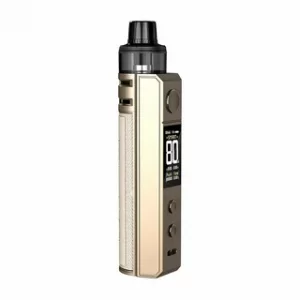Ensuring Regulatory Compliance in the Production of Precision Medical Parts

Precision in the manufacturing of medical components is paramount to ensure the safety and efficacy of medical devices. These precision medical parts serve crucial roles in devices such as implants, surgical instruments, and diagnostic tools. However, the production of these intricate components must adhere to stringent regulatory standards to guarantee quality, reliability, and most importantly, patient safety.
Navigating Regulatory Landscape
The medical industry operates within a highly regulated environment governed by various regulatory bodies like the Food and Drug Administration (FDA) in the United States, the European Medicines Agency (EMA), and other local regulatory authorities worldwide. These entities establish stringent guidelines and standards that manufacturers must adhere to in the production of medical parts.
Quality Management Systems
To ensure compliance with regulatory standards, manufacturers implement robust quality management systems (QMS). These medical precision parts encompass standardized processes, documentation, and controls that govern every stage of production, from design to distribution. Adhering to standards like ISO 13485 is common practice, emphasizing the need for stringent quality control and risk management throughout the manufacturing process.
Material Selection and Traceability
The selection of materials for precision medical parts is critical. Manufacturers must choose materials that meet specific standards for biocompatibility, durability, and performance. Traceability of these materials is equally essential, ensuring that each component’s source and characteristics can be traced throughout the production process and beyond, guaranteeing accountability and quality assurance.
Design and Development Controls
The design and development phase of precision medical parts demands meticulous attention to detail. Any changes made during this phase must undergo rigorous assessment to ensure they comply with regulatory requirements. Advanced technologies like computer-aided design (CAD) and simulation software aid in the creation of intricate designs, allowing for precise specifications and reducing the margin for error.
Manufacturing Processes and Validation
Manufacturing processes must meet stringent validation requirements set by regulatory authorities. Validation ensures that production methods consistently yield products meeting predetermined specifications. Advanced manufacturing techniques such as additive manufacturing (3D printing) are gaining traction in the medical industry due to their precision; however, they require thorough validation to meet regulatory standards.
Quality Control and Inspection
Implementing robust quality control measures is indispensable in ensuring compliance. Continuous inspection throughout the manufacturing process detects any deviations from specifications promptly. Cutting-edge inspection technologies such as coordinate measuring machines (CMMs) and optical measurement systems play a vital role in verifying the dimensional accuracy and integrity of precision medical parts.
Documentation and Record-Keeping
Accurate and comprehensive documentation is a cornerstone of regulatory compliance. Manufacturers must maintain detailed records of every stage of production, including materials used, quality control checks, and any deviations encountered and addressed. These records serve as evidence of compliance during audits and inspections by regulatory authorities.
Risk Management
A comprehensive risk management process is integral to identifying and mitigating potential hazards associated with precision medical parts. Manufacturers conduct risk assessments at various stages of production to proactively address any issues that could compromise the safety or performance of the final product.
Adherence to International Standards
Manufacturers often adhere to globally recognized standards such as the International Organization for Standardization (ISO) and harmonized standards specific to the medical device industry. Compliance with these standards not only ensures product quality but also facilitates market access by demonstrating adherence to internationally accepted norms.
Conclusion
The production of precision medical parts necessitates strict adherence to regulatory compliance at every phase of development and manufacturing. Stringent quality management systems, meticulous documentation, adherence to standards, and a commitment to continuous improvement are essential to ensuring the safety, reliability, and efficacy of these critical components in the medical field. By upholding these standards, manufacturers not only meet regulatory requirements but also contribute significantly to improving patient outcomes and advancing healthcare globally.







